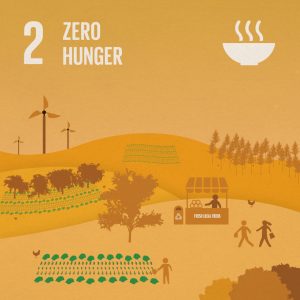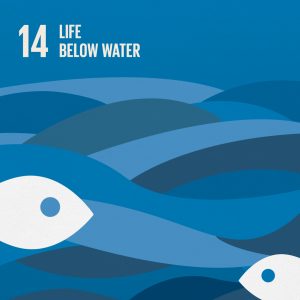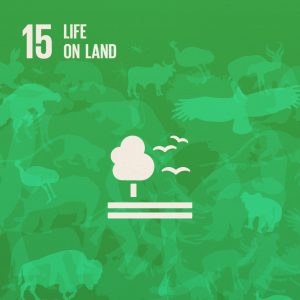The international Sustainable Development Goals (SDGs) were created by the nations of the world under the auspices of the United Nations. Tapping experts across the globe on a range of disciplines, seventeen goals were established with a deadline of 2030 for achieving each goal. The seventeen goal topics were identified as the essential priorities for meeting the needs of all people across the world.
Each goal is intended to be addressed at every scale, from local communities to planet-wide collaborations.
Goal 2 is Zero Hunger: “End hunger, achieve food security and improved nutrition and promote sustainable agriculture.” So this goal is about a lot more than eliminating hunger. It is as much about the way we achieve that goal if we are committed to achieving sustainability: eliminating food waste and supporting local farmers; providing food for all in a way that restores rather than further degrades soils, air, water, landscapes, and the climate while providing for the health, safety, and financial return of farmworkers; and treating animals raised for food humanely, as the sentient (“finely sensitive in perception or feeling” – Merriam-Webster) beings that they are.
How is the world doing in making progress toward this goal? Here is the U.N.’s current assessment:
The world is not on track to achieve Zero Hunger by 2030. If recent trends continue, the number of people affected by hunger would surpass 840 million by 2030.
After decades of steady decline, the number of people who suffer from hunger – as measured by the prevalence of undernourishment – began to slowly increase again in 2015. Current estimates show that nearly 690 million people are hungry, or 8.9 percent of the world population – up by 10 million people in one year and by nearly 60 million in five years.
According to the World Food Programme, 135 million suffer from acute hunger largely due to man-made conflicts, climate change, and economic downturns. The COVID-19 pandemic could now double that number, putting an additional 130 million people at risk of suffering acute hunger by the end of 2020.
With more than a quarter of a billion people potentially at the brink of starvation, swift action needs to be taken to provide food and humanitarian relief to the most at-risk regions.
At the same time, a profound change of the global food and agriculture system is needed if we are to nourish the more than 690 million people who are hungry today – and the additional 2 billion people the world will have by 2050. Increasing agricultural productivity and sustainable food production are crucial to help alleviate the perils of hunger.
In the U.S. 40 million Americans face hunger on a daily basis. Here in Alabama, according to the Alabama Food Bank Association, nearly 20% of our population is food insecure, more than 900,000 people. In October 2019, before the COVID-19 pandemic made matters worse, an Alabama Political Reporter article stated that nearly one-third of children living in rural Alabama suffer food insecurity, which is the lack of sufficient household funds to provide reliable and ongoing supplies of nutritious food for a family. One in four children in Alabama struggles with hunger. A significant percentage of food insecure and hungry children come from minority communities.
These conditions are a moral failure on the part of society in the United States and around the world. There is no reason that hunger or food insecurity should exist. It is inexcusable because there is more than enough food to feed everyone.
Then what’s the problem? There are numerous factors. For one thing, a shocking amount of food is wasted. Globally, at least one-third of all food produced goes to waste. In the United States, it’s 40%.
The food sharing app OLIO exists to connect people with each other and local businesses so that surplus food can be shared and not wasted. OLIO describes food waste as a chronic market failure: “Between 33-50% of all food produced globally is never eaten, and the value of this wasted food is worth over $1 trillion. To put that in perspective, in the USA food waste represents 1.3% of the total GDP. Food waste is a massive market inefficiency, the kind of which does not persist in other industries.”
Furthermore, “All the world’s nearly one billion hungry people could be fed on less than a quarter of the food that is wasted in the US, UK, and Europe.”
According to research cited in the Journal of Sustainable Agriculture, we already grow enough food for 10 billion people.
Wow!
So what is being done and what can we do to resolve this market and moral failing?
That’s a big question and in the interest of space and the reader’s patience, I will be brief and stay close to home.
Auburn University is a global leader in higher education efforts toward a food-secure world. The Hunger Solutions Institute (HSI) in the College of Human Sciences is in many ways spearheading these efforts. Check out HSI to learn about all their innovative and impactful programming. HSI’s website includes a page on Campus and Community Resources for access to food which includes a Share Meals food sharing app.
The Auburn University Campus Kitchens Project is one of the most outstanding and effective student organizations on campus. These students gather unused food from on campus and local restaurants and repackage it into individual meals. These students successfully provide thousands of meals every year to individuals on campus and from Tuskegee to Opelika.

A group of volunteers working for the Campus Kitchens Project
The Food Bank of East Alabama “ works to create a safety net of community partners, programs, and direct services to meet the needs of our neighbors who struggle with hunger across our seven-county service area.” The Food Bank is always in need of donations of time and money to meet the needs of the communities it serves, and those needs have only increased because of the coronavirus.
Our individual actions in the community are very important, however, they are not enough to create food security for all that is sustainable over the long term. A humane and morally driven transformation of the food system is necessary. That requires societal commitments, including government actions and policy and collaboration at national and international scales, to create needed change.
The book Food Security, Nutrition, and Sustainability, edited by Geoffrey Lawrence, Kirsten Lyons, and Tabatha Wallington, tapped 37 international scholars whose essays address many of the topics related to sustainable food security and nutrition over the long term. Among their concluding remarks:
“Sustainability has to be the basis on which the world produces food and ensures healthy consumption for all (UNEP 2009). Along with other voices, as many of the contributors to this book argue, food security can only be achieved if food systems become sustainable.”
And the book’s final words: “The discourse about food security symbolizes the need to integrate nutrition, environmental sustainability, and social justice. No other food-policy thinking passes the laugh test.”
Learn about the SDGs & AU and our contributions related to this post.








